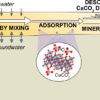Imagine it’s Monday morning, too cold and too dark, but once that alarm goes off, you know you’ve got to rally. The kids have to get to school. You’ve got to get to work. And, of course, your ever-growing to-do list hangs over your head like a dark cloud, somehow both too threatening to ignore and too threatening to start its tasks.
On days like this, you may be grateful simply to make it through. But then it begins, all over again.
While you can’t escape the grind, you can transform it. The latest psychological research on the good life points the way: By shifting your mindset, you can make your day-to-day more interesting and create psychological richness within your life. Psychological richness describes a robust form of cognitive engagement. It’s distinct from happiness and meaning, but just as important to the good life.
In collaboration with Shigehiro Oishi and his research lab, I’ve investigated whether the field of positive psychology has largely overlooked an important dimension of the good life. As the philosopher on our team, I had two directives. First, I helped to define the concept of psychological richness and understand what distinguishes it from happiness and meaning. Second, I set out to explore why psychological richness is valuable.
Our initial studies found that people value experiences that stimulate their minds, challenge them and generate a range of emotions. Many would choose a life full of these experiences, which we describe as psychologically rich, over a happy life or a meaningful life.
This insight points to the important role psychological richness can play within the good life, but it stops short of explaining why it’s good and why people ought to make space for psychological richness within their lives. These are value-laden questions that can’t be answered through empirical research. Their answers are found instead through philosophical analysis.
My philosophical analysis suggests that psychological richness is good for you because it’s interesting. My book, “The Art of the Interesting: What We Miss in Our Pursuit of the Good Life and How to Cultivate It,” shows how to add psychological richness to your life by making it more interesting.
One of the easiest ways to do this is by embracing a mindset characterized by curiosity, creativity and what I call “mindfulness 2.0.” When you bring these three perspectives to your day-to-day, you transform the grind into endless opportunities to experience the world as interesting. You develop the capacity to enhance your own life.
Mindfulness 2.0: Noticing without judging
What I call “mindfulness 2.0” means bringing nonevaluative awareness to the world around you – paying attention without judging.
Familiar from mindfulness practices, it’s a form of noticing that brings forth details you typically overlook: the texture of a houseplant’s leaves, the faces of the strangers you pass on the sidewalk, the differing heights…



